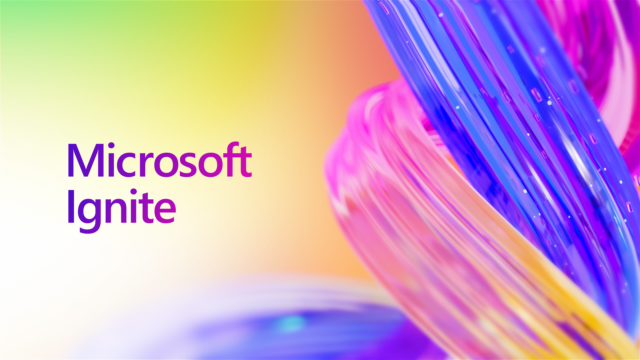MANILA, Philippines, November 2023 — This week, Microsoft made 100 news announcements that touch on multiple layers of an AI-forward strategy, from adoption to productivity to security announced it latest AI innovations at its annual conference, Ignite. The conference is a showcase of the advances being developed to help organizations and developers achieve the total value of Microsoft’s technology and reshape the way work is done.
Rethinking cloud infrastructure
Microsoft has led with groundbreaking advances like partnerships with OpenAI and the integration of ChatGPT capabilities into tools used to search, collaborate, work and learn. Today, Microsoft is rethinking cloud infrastructure to ensure optimization across every layer of the hardware and software stack.
Microsoft announced new innovations across its datacenter fleet, including the latest AI optimized silicon from industry partners and two new Microsoft-designed chips:
- Microsoft Azure Maia, an AI Accelerator chip designed to run cloud-based training and inferencing for AI workloads such as OpenAI models, Bing, GitHub Copilot and ChatGPT.
- Microsoft Azure Cobalt, a cloud-native chip based on Arm architecture optimized for performance, power efficiency and cost-effectiveness for general purpose workloads.
- General availability of Azure Boost, a system that makes storage and networking faster by moving those processes off host servers onto purpose-built hardware and software.
Complementing their custom silicon, Microsoft is expanding its partnerships with silicon providers to provide infrastructure options for customers:
- Adding AMD MI300X accelerated virtual machines (VMs) to Azure. The ND MI300 VMs are designed to accelerate the processing of AI workloads for high range AI model training and generative inferencing, and will feature AMD’s latest GPU, the AMD Instinct MI300X.
- The preview of the new NC H100 v5 Virtual Machine Series built for NVIDIA H100 Tensor Core GPUs, offering greater performance, reliability and efficiency for mid-range AI training and generative AI inferencing.
- Microsoft also announced plans for the ND H200 v5 Virtual Machine Series, an AI-optimized VM featuring the upcoming NVIDIA H200 Tensor Core GPU.
Extending the Microsoft Copilot experience
This year, Microsoft announced and continued to refine its vision for Microsoft Copilot, a set of tools that help people achieve more using AI. To go beyond individual productivity, Microsoft extended Microsoft Copilot offerings across solutions to transform productivity and business processes for every role and function – from office workers and front-line workers to developers and IT professionals.
- Microsoft Copilot for Microsoft 365: This month, Copilot for Microsoft 365 became generally available for enterprises. The new Microsoft Copilot Dashboard shows Copilot’s impact to their user organizations – with insights similar to those found in Microsoft’s Work Trend Index. Microsoft introduced new capabilities that help Copilot offer responses that are tailored to users’ unique preferences and roles.
- Microsoft Copilot Studio: Microsoft Copilot Studio is a low-code tool designed to customize Microsoft Copilot for Microsoft 365 by integrating business-critical data and build custom copilots for internal or external use. Copilot Studio works with connectors, plugins and GPTs, allowing IT teams to steer Copilot to the best data sources for specific queries.
- Microsoft Copilot for Service: The newest copilot to provide role-based support helps businesses accelerate their AI transformation of customer service. Copilot for Service includes Microsoft Copilot for Microsoft 365 and helps extend existing contact centers with generative AI. In customer interactions, agents can ask Copilot for Service questions in natural language and receive relevant insights based on data sources from knowledge repositories, leading to faster and smarter resolutions.
- Copilot in Microsoft Dynamics 365 Guides: Combining the power of generative AI and mixed reality, this copilot helps frontline workers complete complex tasks and resolve issues faster without disrupting workflow. Available first on HoloLens 2, the hands-free copilot will help service industry professionals use natural language and human gestures to offer interactive guidance through content and holograms overlaid on the equipment.
- Microsoft Copilot for Azure: This is an AI companion for IT that simplifies day-to-day IT administration. More than just a tool, it is a unified chat experience that understands the user’s role and goals, and enhances the ability to design, operate and troubleshoot apps and infrastructure. Copilot for Azure helps IT teams gain new insights into their workloads, unlock untapped Azure functionality and orchestrate tasks across both cloud and edge.
- Bringing Copilot to Everyone: Bing Chat and Bing Chat Enterprise will now simply become Copilot. With these changes, when signed in with a Microsoft Entra ID, customers using Copilot in Bing, Edge and Windows will receive the benefit of commercial data protection. Over time, Microsoft will also expand the eligibility of Copilot with commercial data protection to even more Entra ID (formerly Azure Active Directory) users at no additional cost. Copilot (formerly Bing Chat and Bing Chat Enterprise) will be out of preview and become generally available starting December 1. Learn more here.
Reinforcing the data and AI connection
Microsoft is committed to creating an integrated, simplified experience to connect users’ data to its AI tools.
Microsoft Fabric is part of that solution. Available now, Microsoft Fabric reshapes how teams work with data by bringing everyone together on a single, AI-powered platform that unifies all those data estates on an enterprise-grade data foundation.
Copilot in Microsoft Fabric also integrates with Microsoft Office and Teams to foster a data culture to scale the power of data value creation throughout the organization. Microsoft has made more than 100 feature updates since Build and expanded its ecosystem with industry leading partners, and have over 25,000 customers including Milliman, Zeiss, London Stock Exchange and EY using it today.
Unlocking more value for developers with Azure AI
With Model-as-a-Service, pro developers will be able to easily integrate latest AI models such as Llama 2 from Meta and upcoming premium models from Mistral and Jais from G42 as API endpoints to their applications. They can also customize these models with their own data without needing to worry about setting up and managing the GPU infrastructure, helping eliminate the complexity of provisioning resources and managing hosting.
With the preview of Azure AI Studio, there is now a unified and trusted platform to help organizations more easily explore, build, test and deploy AI apps – all in one place. With Azure AI Studio, users can build their own copilots, train their own, or ground other foundational and open-source models with data that they bring.
And Vector Search, a feature of Azure AI Search, is now generally available, so organizations can generate highly accurate experiences for every user in their generative AI applications.
The new GPT-3.5 Turbo model with a 16K token prompt length will be generally and GPT-4 Turbo will be in public preview in Azure OpenAI Service at the end of November 2023, GPT-4 Turbo will enable users to extend prompt length and bring even more control and efficiency to their generative AI applications.
GPT-4 Turbo with Vision is coming soon to preview and DALLE·3 is now available in public preview in Azure Open AI Service, helping fuel the next generation of enterprise solutions along with GPT-4, so organizations can pursue advanced functionalities with images. And when used with Azure AI Vision service, GPT-4 Turbo with Vision even understands video for generating text outputs, furthering human creativity.
Enabling the responsible deployment of AI
Microsoft leads the industry in the safe and responsible use of AI. The company has set the standard with an industry-leading commitment to defend and indemnify commercial customers from lawsuits for copyright infringement – the Copilot Copyright Commitment (CCC).
At Ignite, Microsoft took its commitment one step further by announcing the expansion of the CCC to customers using Azure OpenAI Service. The new benefit will be called the Customer Copyright Commitment. As part of this expansion, Microsoft published new documentation to help Azure OpenAI Service customers implement technical measures to mitigate the risk of infringing content.
And Azure AI Content Safety is now generally available, helping organizations detect and mitigate harmful content and create better online experiences. Customers can use Azure AI Content Safety as a built-in-safety system within Azure OpenAI Service, for open-source models as part of their prompt engineering in Azure Machine Learning, or as a standalone API service.
Introducing new experiences in Windows to empower employees, IT and developers
Microsoft introduced new experiences in Windows 11 and Windows 365 for IT and employees that unlock new ways of working and make more AI accessible across any device. In addition, it also announced a host of new AI and productivity tools for developers, including Windows AI Studio.
Announcing NVIDIA AI foundry service
Aimed at helping enterprises and startups supercharge the development, tuning and deployment of their own custom AI models on Microsoft Azure, NVIDIA will announce their AI foundry service running on Azure. The NVIDIA AI foundry service pulls together three elements – a collection of NVIDIA AI Foundation models, NVIDIA NeMo framework and tools, and NVIDIA DGX Cloud AI supercomputing and services – that give enterprises an end-to-end solution for creating custom generative AI models. Businesses can then deploy their models with NVIDIA AI Enterprise software on Azure to power generative AI applications, including intelligent search, summarization and content generation.
Strengthening defenses in the era of AI
Microsoft addressed the evolving global thread landscape by introducing new technologies across its suite of security solutions to help defenders make the world a safer place.
Microsoft Sentinel and Microsoft Defender XDR (previously Microsoft 365 Defender) will be combined to create the industry’s first Unified Security Operations Platform, with embedded Security Copilot experiences. With built-in generative AI, it’s a single, powerful experience focused on protecting threats at machine speed and aiding defenders by simplifying the complexity of their environment.
Additionally, the expansion of Security Copilot embedded within Intune, Purview and Entra will help IT administrators, compliance units and identity teams simplify complex scenarios.
Revisit Microsoft Ignite or explore the Book of News, the official compendium of all announcements made during the event.




